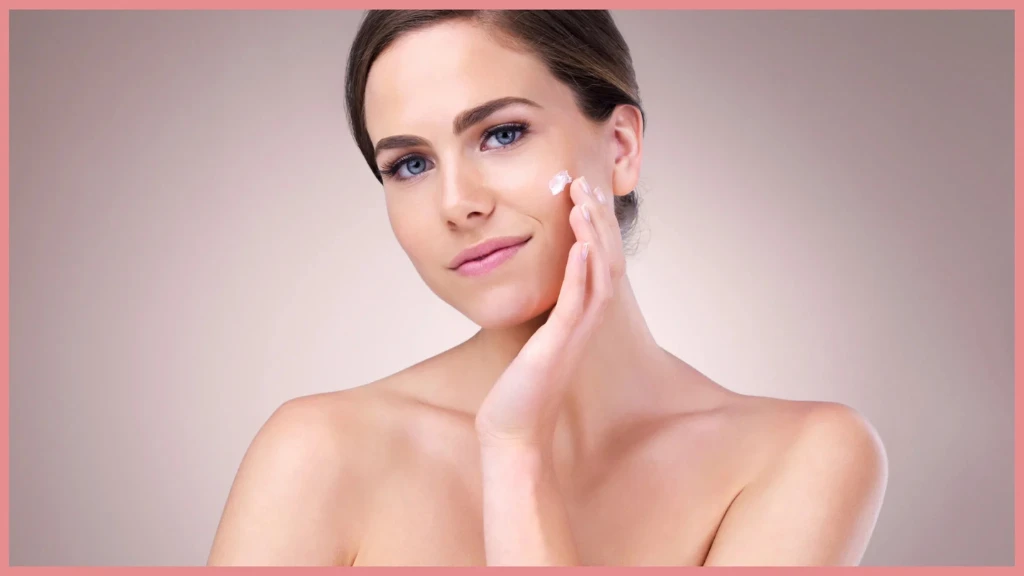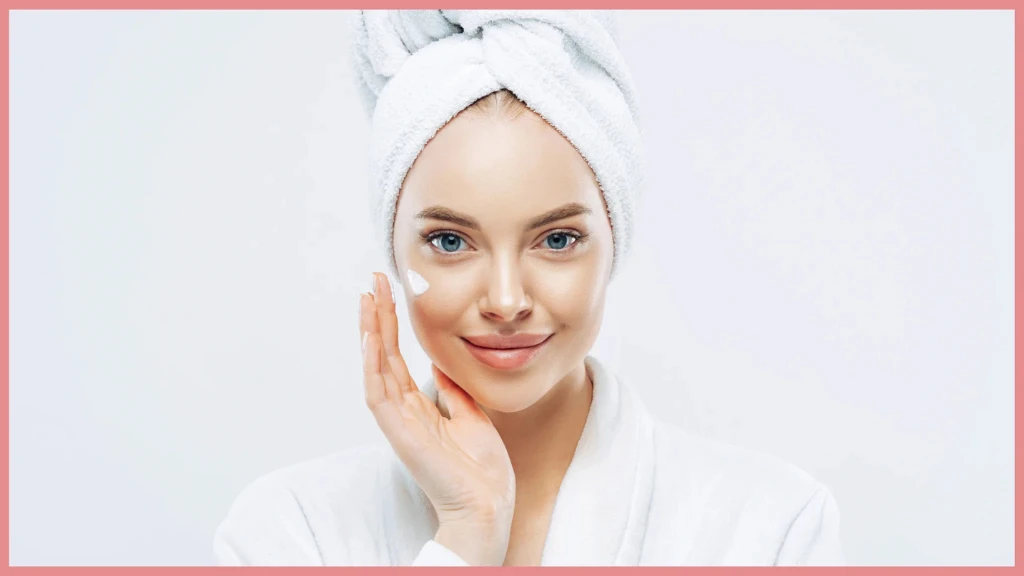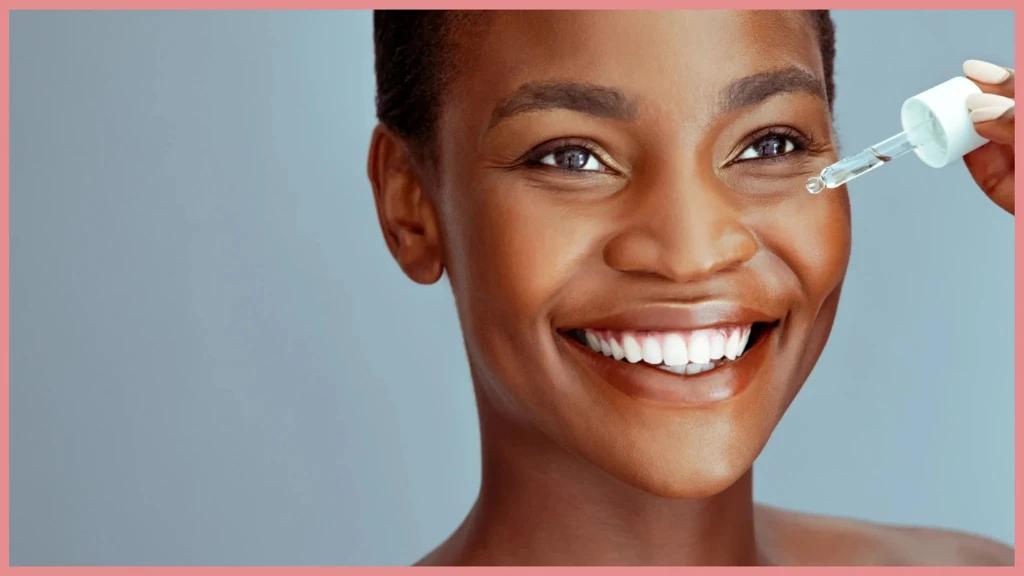Face Serums: Which One Do You Need?
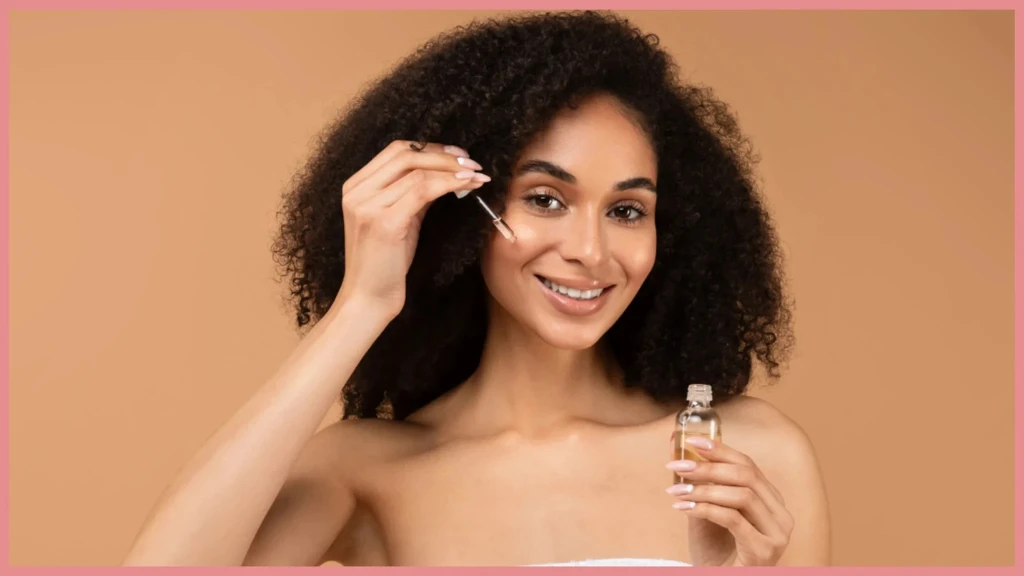
When it comes to skincare, serums are like the superheroes of your routine. They're packed with powerful ingredients designed to tackle specific concerns, and their lightweight texture allows them to sink into your skin quickly.
Whether you're dealing with dryness, acne, signs of aging, or uneven skin tone, there's a serum that can help. I know firsthand how confusing it can be to navigate all the options.
I've always wanted the best for my dark skin which is why I've been there and done that when it comes to trying out tons of options. However, with my guidance you won't have too—you'll be a serum pro in no time.
Facial serums come in many varieties, each designed to target specific skin concerns. If you're new to serums, learn how to introduce new skincare products safely and the key differences between toner and cleanser.
In this article, I’ll break down the most common types of serums, their benefits, and how to choose the best one for your needs.
Comprehensive Guide: Exploring Different Types of Face Serums
6 Different Types of Serums for Face and Their Benefits
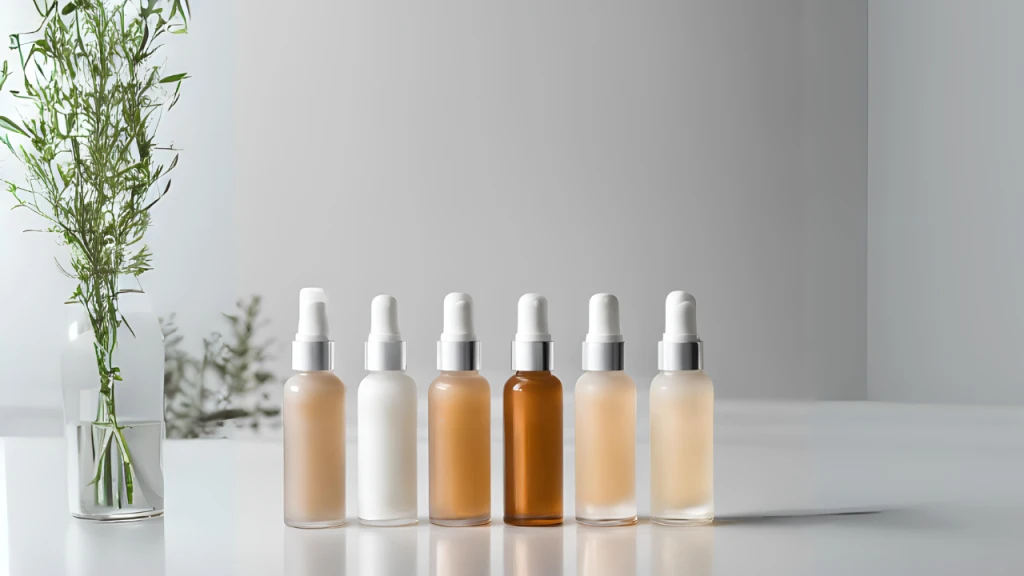
Serums come in many varieties, each tailored to address a specific skin issue. Here’s a breakdown of the six main categories and why they might be the secret weapon your skin needs.
Hydrating Serums
If your skin feels tight or looks dull, a hydrating serum could be your new best friend. These serums replenish moisture and help maintain your skin's barrier.
Hyaluronic Acid
This powerhouse ingredient acts like a sponge, holding up to 1,000 times its weight in water. It doesn’t just hydrate—it also helps the skin appear plumper and smoother, making fine lines and wrinkles less noticeable.
I’ve found that when I use a serum with hyaluronic acid, my skin feels instantly refreshed and looks dewy all day. It’s perfect for layering under other products since it absorbs quickly without leaving any stickiness.
Glycerin
Think of glycerin as a magnet for moisture. This natural humectant pulls water from the air into your skin, helping to maintain a consistent level of hydration.
Unlike heavier moisturizers, it won’t clog your pores, making it a great option for oily or combination skin. I’ve noticed that glycerin-based serums leave my skin feeling soft and smooth, even during harsh winter months.
Squalane
If your skin needs both hydration and a little extra protection, squalane is your go-to. This lipid mimics the oils your skin naturally produces, helping to strengthen your skin’s barrier while locking in moisture. What I love most about squalane is how lightweight and non-greasy it feels, yet it delivers long-lasting hydration. It was a godsend—leaving my black skin utterly radiant.
It’s especially helpful if your skin feels sensitive or compromised, as it works to restore balance and comfort.
Anti-Aging Serums
If you’re starting to see fine lines or want to keep your skin looking youthful, anti-aging serums are essential.
Retinol
Known as the gold standard in anti-aging, retinol is a derivative of vitamin A that goes to work beneath the skin’s surface. It stimulates collagen production, which helps to firm the skin and smooth out fine lines and wrinkles.
Beyond that, it improves skin cell turnover, which can reduce the appearance of dark spots and uneven texture.
From my experience, retinol is a game-changer, but you need to start slowly—applying it once or twice a week at first to allow your skin to adjust. Pairing it with a moisturizer can also minimize irritation.
Peptides
These are essentially the building blocks of your skin’s proteins. Peptides are short chains of amino acids that signal your skin to produce more collagen and elastin, two proteins critical for maintaining firmness and elasticity.
Over time, peptide-based serums can visibly lift and tighten the skin, making it look and feel firmer. I’ve noticed that peptides also help my skin look smoother and more resilient, especially when used consistently in my routine.
Vitamin C
This powerhouse antioxidant doesn’t just brighten the skin—it also shields it from environmental damage caused by free radicals.
Vitamin C reduces hyperpigmentation, helping to fade dark spots and even out your skin tone, while also boosting collagen production for a plumper, more radiant complexion.
I always apply my Vitamin C serum in the morning before sunscreen because it enhances my skin’s natural glow and provides added protection against sun damage. Look for stabilized forms of Vitamin C, like ascorbic acid, for the most effective results.
Brightening Serums
If your skin is looking a little lackluster or you’re dealing with dark spots, a brightening serum might be what you need.
Vitamin C
Beyond its role in anti-aging, Vitamin C is a key player in brightening the skin. It works by inhibiting melanin production, the pigment responsible for dark spots and hyperpigmentation.
This makes it incredibly effective at fading sunspots, post-acne marks, and other forms of discoloration.
Personally, I’ve noticed that using Vitamin C regularly gives my skin a vibrant glow that looks like it’s lit from within. For the best results, apply it in the morning to let its antioxidant properties protect your skin throughout the day.
Niacinamide
This multitasking ingredient is a brightening powerhouse. It not only reduces the appearance of redness but also helps improve skin tone by minimizing pigmentation irregularities.
Additionally, niacinamide refines the look of pores, leaving your skin smooth and more balanced. I love how gentle it is—perfect for all skin types, even if you’re on the sensitive side.
When I started using niacinamide, I saw improvements in overall tone and texture within a few weeks.
AHAs (Alpha Hydroxy Acids)
I’ve found that natural acids like glycolic and lactic acid work wonders for my skin. They gently exfoliate by breaking down the bonds that hold dead skin cells together. Once that dull layer is gone, what’s left is a smoother, more radiant complexion that really shines through.
Regular use of AHA-based serums can also help reduce the appearance of fine lines and improve skin texture over time.
If you’re new to acids, I’d recommend starting with a low concentration to avoid irritation and gradually increasing usage as your skin adjusts.
Acne-Fighting Serums
For anyone struggling with breakouts, acne-fighting serums can help keep your skin clear and calm.
Salicylic Acid
This beta hydroxy acid (BHA) works deep within the pores to dissolve oil and dead skin cells that cause breakouts. It also reduces redness and swelling, making it a favorite for tackling blackheads and whiteheads. Regular use helps keep skin clear and smooth.
Benzoyl Peroxide
A powerful ingredient for stubborn acne, it kills acne-causing bacteria and calms inflamed blemishes. Starting with a low concentration minimizes dryness or irritation, and it’s especially effective as a spot treatment for active breakouts.
Tea Tree Oil
A natural alternative, tea tree oil has antiseptic and anti-inflammatory properties. It calms redness, reduces swelling, and is great for smaller breakouts or as a gentle follow-up to harsher treatments.
Soothing Serums
Sensitive skin or irritation can leave you feeling frustrated, but soothing serums help calm everything down.
Chamomile
This gentle herb is renowned for its anti-inflammatory properties. It works to calm redness, irritation, and even minor sensitivities. Whether your skin is reacting to the environment or a product, chamomile can bring noticeable comfort and relief.
Aloe Vera
Known for its soothing and hydrating qualities, aloe vera acts as a natural humectant, drawing moisture into the skin while promoting healing. It’s particularly effective for sunburns, irritation, or dryness, leaving your skin feeling refreshed and hydrated.
Centella Asiatica
Also known as “Cica,” this powerful antioxidant not only reduces inflammation but also aids in repairing damaged skin. It promotes collagen production, which strengthens the skin’s barrier and enhances its ability to recover from stress or irritation.
Exfoliating Serums
Exfoliation is key to smooth, glowing skin, and these serums make it easy to slough off dead cells.
AHAs (Alpha Hydroxy Acids)
Ingredients like glycolic acid and lactic acid work on the surface of your skin, dissolving dead skin cells to reveal a fresher, more radiant layer beneath.
Regular use improves texture and minimizes the appearance of fine lines, leaving your skin visibly smoother and more luminous.
BHAs (Beta Hydroxy Acids)
Salicylic acid is a BHA that works deep within pores to clear out oil and debris, making it ideal for oily or acne-prone skin. It helps reduce inflammation and prevents clogged pores, leaving your skin clearer and more refined.
Enzymatic Exfoliants
Derived from fruits like papaya and pineapple, these gentle exfoliants dissolve dead skin cells without irritation. They’re perfect for sensitive skin types, leaving your complexion soft, smooth, and glowing.
How to Choose a Serum for Your Face

Choosing the right serum can feel overwhelming, but breaking it down into simple steps makes it easier to find one that fits your needs. Here’s how to make the best choice for your skin:
- Identify Your Skin Concerns: Start by understanding what you want to address. Are you dealing with dryness, acne, signs of aging, or dark spots? Defining your goals will help narrow down your options.
- Choose the Right Ingredients: Look for serums with ingredients tailored to your concerns. For example, opt for a hyaluronic acid like The Ordinary 2% Hyaluronic Acid from Amazon.com if you need hydration, Ole Henriksen Vitamin C Truth serum from Amazon.com for brightening, or salicylic acid like The Ordinary 2% Anhydrous Solution Pore Clearing Serum also available at Amazon.com for acne.
- Patch Test: When introducing a new serum, always patch test on a small area of your skin. This minimizes the risk of irritation or allergic reactions and helps you gauge how your skin will respond.
- Consult a Dermatologist: If you’re unsure which serum is best for you, or if you have specific concerns like severe acne or sensitive skin, a dermatologist can provide personalized guidance and recommendations.
Conclusion
Serums are one of the most effective ways to address specific skin concerns, but the key is choosing the right one for you. Through my skincare journey as a black woman I learned that everyone’s skin is unique, and finding your perfect match might take a little trial and error.
With innovations happening constantly, serums are becoming even more targeted and effective. From advanced peptides to plant-based actives, the possibilities are endless.
Investing in the right serums can make a world of difference in your skincare journey. Trust me, once you find the right combination, you’ll wonder how you ever lived without them.

